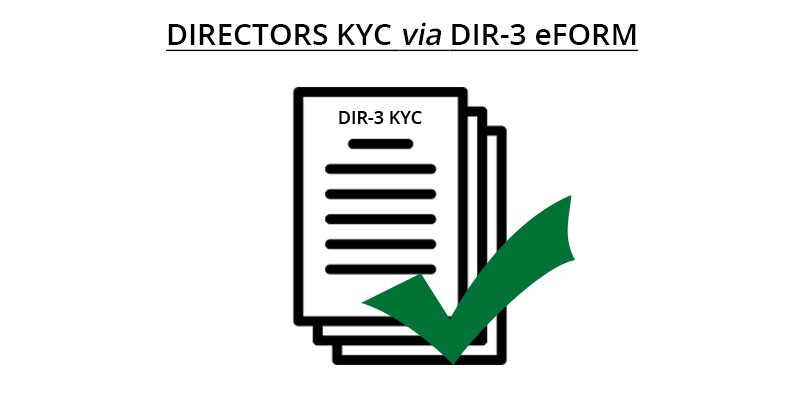What is Director Identification Number (DIN)?
September 19, 2018 by Akshara Bala
The Director Identification Number (also referred to as DIN) is a unique eight-digit identification number that is mandatory for all existing directors of an incorporated company. Potential directors must also necessarily have a Director identification number to become a director of a company.
DIN was introduced in 2006 to ensure the authenticity of the directors of a company. While the DIN does not help establish the identity of the director, it makes sure that the director is traceable and keeps a record of their past and present activities. To further reduce corporate malpractice, the Ministry of Corporate Affairs (MCA) introduced a mandatory Directors KYC compliance to further increase transparency.
Significance of DIN
The complete information of company directors in India is maintained through the DIN database, and any changes in the director’s information are to be necessarily updated. The DIN is not company specific, so a director needs to apply for only one DIN number, irrespective of the number of companies he/she manages or plans to manage. This identification number is mandatory for incorporating a new private limited company, limited company or one person company. Where, the details of the first directors of the company, including DIN, needs to be updated while filling the incorporation forms. This identification number is not required by the shareholders of the company unless they are going to be appointed as the company’s director as well.
How to Apply for a DIN
The process to apply for a DIN is fairly simple and can be done online. Section 153 of the Companies Act states that any individual who is to be appointed as a director of an existing or new company must necessarily apply for the allotment of a DIN to the Central Government (MCA). The same is applicable to the designated partners of new or existing Limited Liability Partnerships (LLPs) for obtaining the DPIN (Designated Partner Identification Number).
Requirements for DIN registration:
- PAN (mandatory for India directors)
- Passport (foreign national directors)
- Address Proof (Aadhar card, Telephone bill or Electricity Bill)
- Director’s mobile (verified via OTP)
- Director’s e-mail ID (verified via OTP)
Filing of the form:
The Form DIR-3 can be filled electronically and submitted by the applicant directors using his/her digital signature. The form is to be verified by the Company Secretary / Chartered Account in full-time employment of the Indian company in which the director is to be appointed. Alternatively, the details can be verified by the managing director, CEO or CFO of the company.
More on: DIR-3 KYC for All DIN Holders - Checklist (Penalty, Fee, Documents)
Allotment of DIN:
In most cases the DIN is allotted in a couple of days, however, additional documents might be required. There is no expiry for the DIN number, once allotted. However, the MCA has the right to cancel the allotment on specific grounds such as non-compliance of Directors KYC or if evidence of fraud is found.
Compliance
Rule 12A of the Companies Rules has been modified to include a provision for a mandatory Directors KYC. For this, an eForm DIR-3 KYC has to be furnished and filed every year by all company directors. This practice was introduced to ensure that only genuine people are appointed as the directors of companies, in a view of stopping corporate malpractice. The DIR-3 form would have to be submitted with certain supporting documents and would have to necessarily be certified by a practising Company Secretary or Chartered Accountant.
